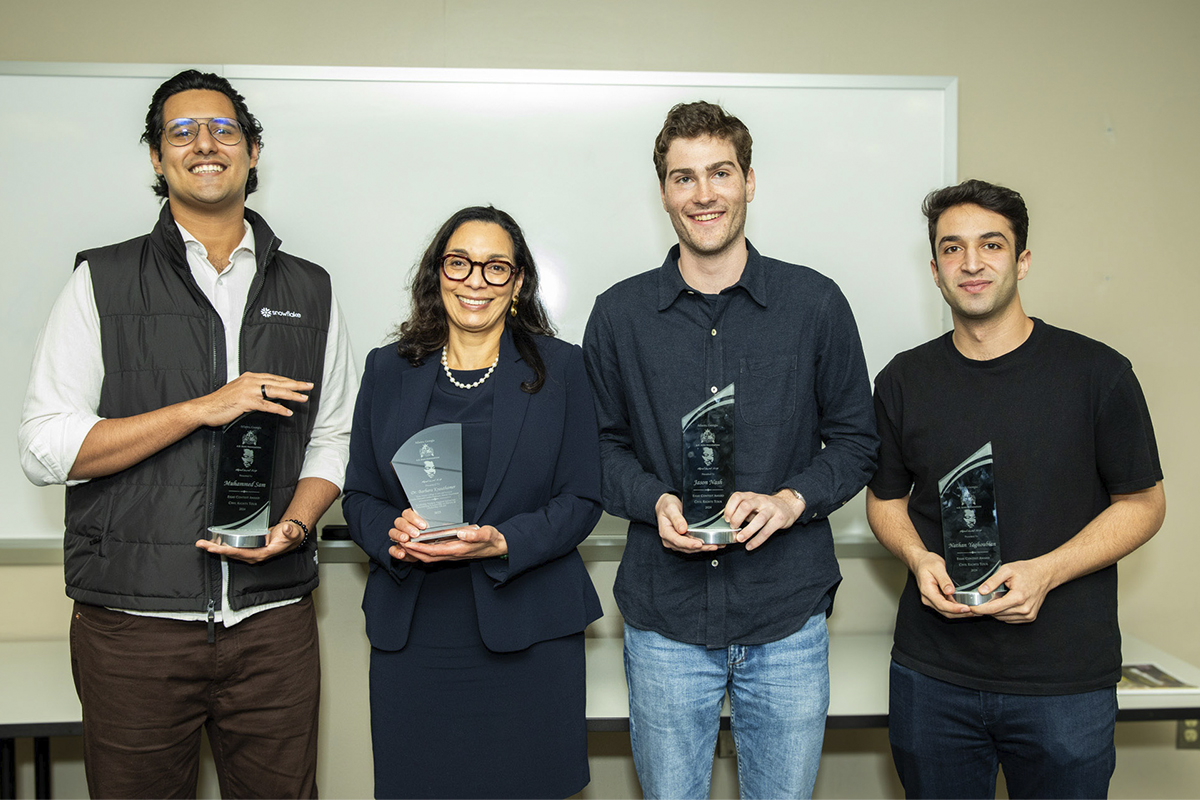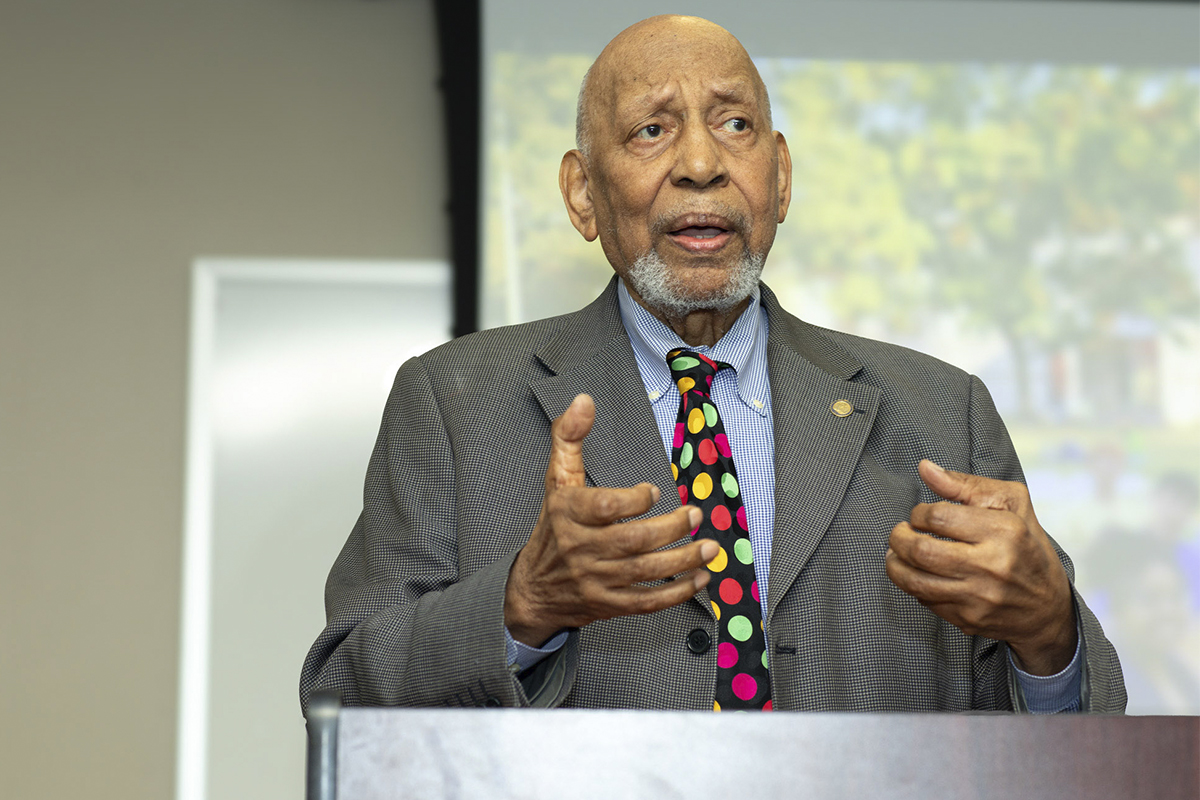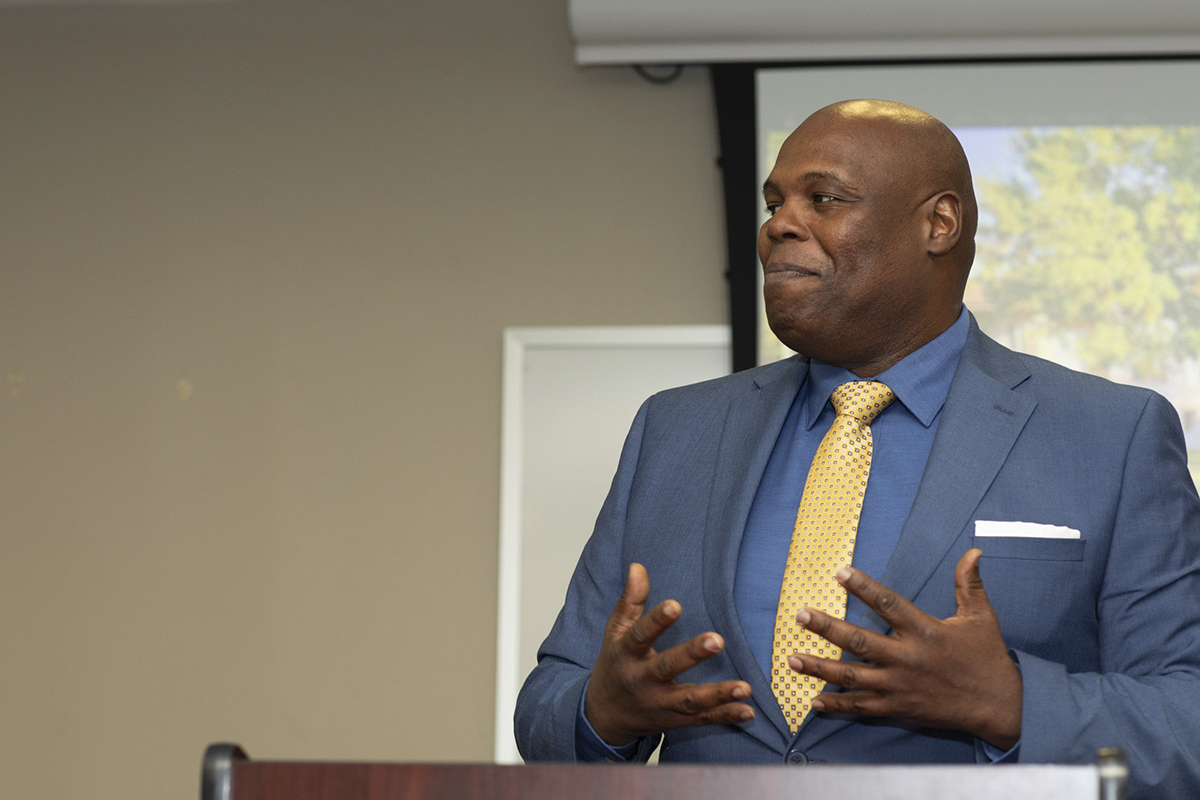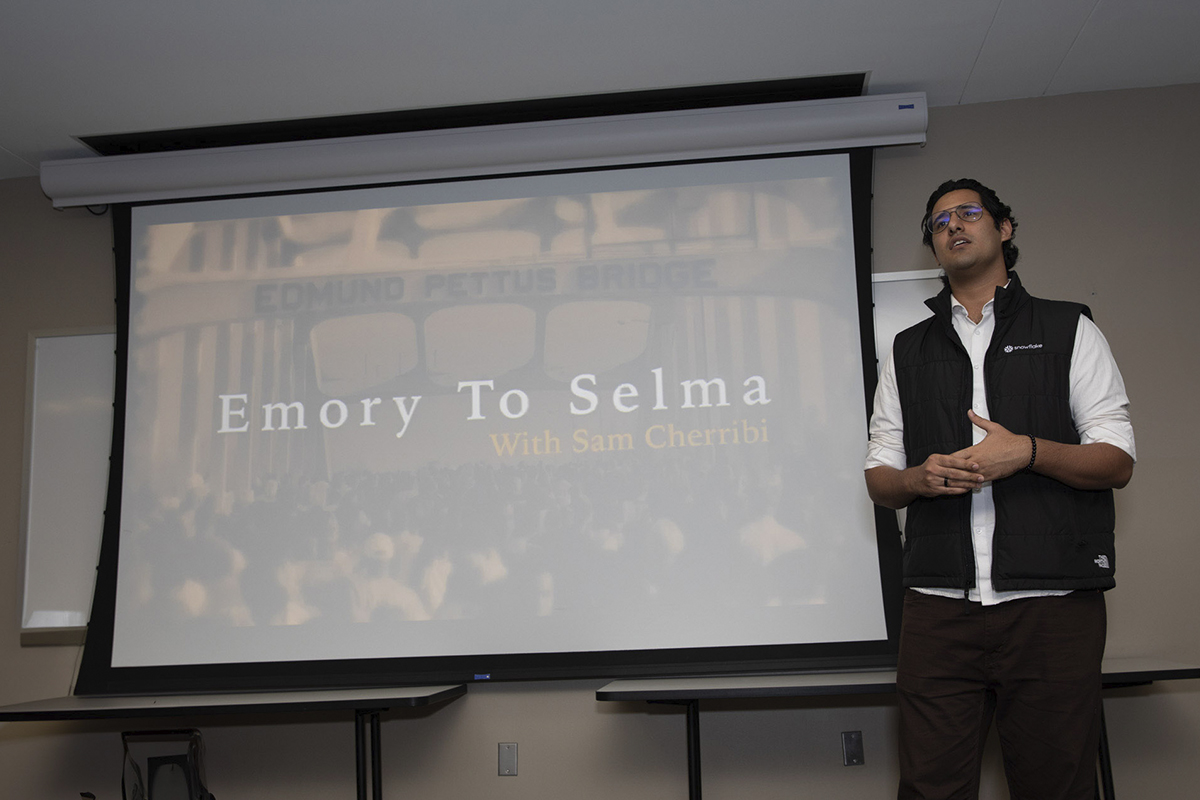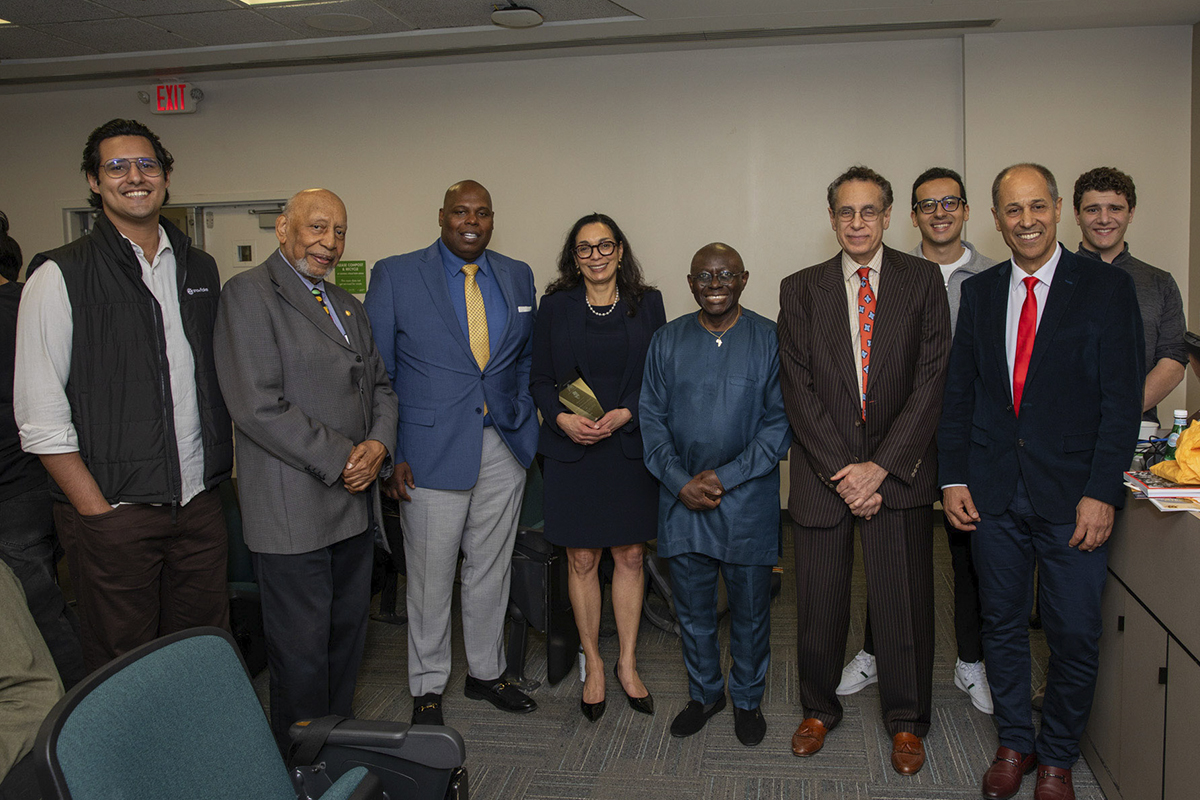Emory College senior Muhammad Sami didn’t know a lot about the history of Selma when he and dozens of other Emory students traveled to the Alabama city last March.
But a short film he created to explore the conflict between the city’s hopes during the civil rights movement and its present-day economic distress won him a Civil Rights Legacy Award from the A.D. King Foundation during a special ceremony hosted by Emory College of Arts and Sciences.
“It’s much better to give people something visually that they can see,” says the Middle Eastern and South Asian Studies (MESAS) major and media production minor of his 6.5-minute documentary. The film follows students as they visit Selma’s historic sites while confronting the reality of its present day, diminished state of empty storefronts and crumbling infrastructure.
“It’s engaging,” Sami adds. “It generally reaches far beyond the normal audience that would read something.”
The A.D. King Foundation highlights the enormous contributions to the civil rights movement by the Rev. A.D. King, brother of Rev. Martin Luther King Jr. It promotes youth empowerment development and non-violent social change strategies by honoring outstanding student work each year.
The foundation honored Sami’s filmmaking and essays from fellow Emory undergraduate students Nathan Yaghoubian and Jason Nash with its Civil Rights Legacy Awards during a special ceremony this month on Emory’s Atlanta campus. Yaghoubian and Nash, who also attended the Selma trip last March, won for their essays exploring the city’s lost promise.
Selma was the setting for several critical moments during the civil rights movement, including three 1965 marches that put a spotlight on racism in the South. One of the marches, a demonstration on March 7 known as “Bloody Sunday,” was led in part by John Lewis, who would go on to become a longtime Democratic congressional representative for Georgia.
Babs Onabanjo, president and CEO of the A.D. King Foundation, praised the Emory winners in his remarks before the audience of around 75 students, faculty and administrators.
“Jason and Nathan, your work on the economic struggles of Selma sheds light on the challenges that persist in the city — the decaying infrastructure, the government neglect and the alarming population decline,” he said.
Onabanjo was equally impressed with Sami.
“Muhammad Sami, your documentary captures the voices, the stories and the experiences of students who traveled to Selma, who walked in the footsteps of those who marched for voting rights, who stood on the Edmund Pettus Bridge with the weight of history upon them,” Onabanjo said. “Your work ensures that this experience is not just a moment but a movement — one that continues to inspire and educate.”
Speakers also included Preston King, political philosopher, former Emory faculty member and distinguished professor at Morehouse University, and Latron Price, founder of Dry and Cold Storage Atlanta, LLC. Price has worked with Cherribi’s classes to connect Emory students to business leadership and educational mentorship.
King spoke about the importance of the students’ voices and that it is essential that they not only report what they see and experience but also challenge their own findings.
“Write up your own thesis (or hypothesis) in one page, in two pages, or 10,” he said. “Do so with gusto, conviction and even dogmatism. Then, step back from it as if it were a rabid dog. Ask yourself what is wrong with it. If nothing comes to mind, dive into the literature and find someone who can challenge it — they are always there. Your critics are not your enemies, but your most important helpers.”
Sam Cherribi, teaching professor in Emory College’s Department of Economics and MESAS who helmed the event, said the trio went beyond simply recounting what they had seen on the trip.
“They looked, observed, lived, reported and reflected,” Cherribi said. “They engaged with Selma beyond its annual moment in the light, seeking to understand its struggles and resilience, its stories and its numbers over time.”
The ceremony also honored the ongoing work of Bernard Fraga, the Ann and Michael Hankin Distinguished Professor of Political Science; historian Carol Anderson, Robert W. Woodruff Professor of African American Studies; and Hashem Dezhbakhsh, Goodrich C. White Professor and chair of the Department of Economics.
Emory College Dean Barbara Krauthamer was also recognized during the ceremony, with Cherribi noting the trip would not have been possible without the College’s financial support. Cherribi also credits Ed Goode, senior director of experiential learning in the Pathways Center, and Vialla Hartfield-Mendez, director of engaged learning, for their help.
“What I want to say to all of the students is I hope you know how lucky and privileged you are to have this kind of opportunity to interact with faculty, distinguished scholars and leaders, not just from Emory but from Atlanta and from across the world,” Krauthamer said. “It’s one of the things that makes Emory so special to me.”
Photos by Kizzy Williams, Emory College of Arts and Sciences.

